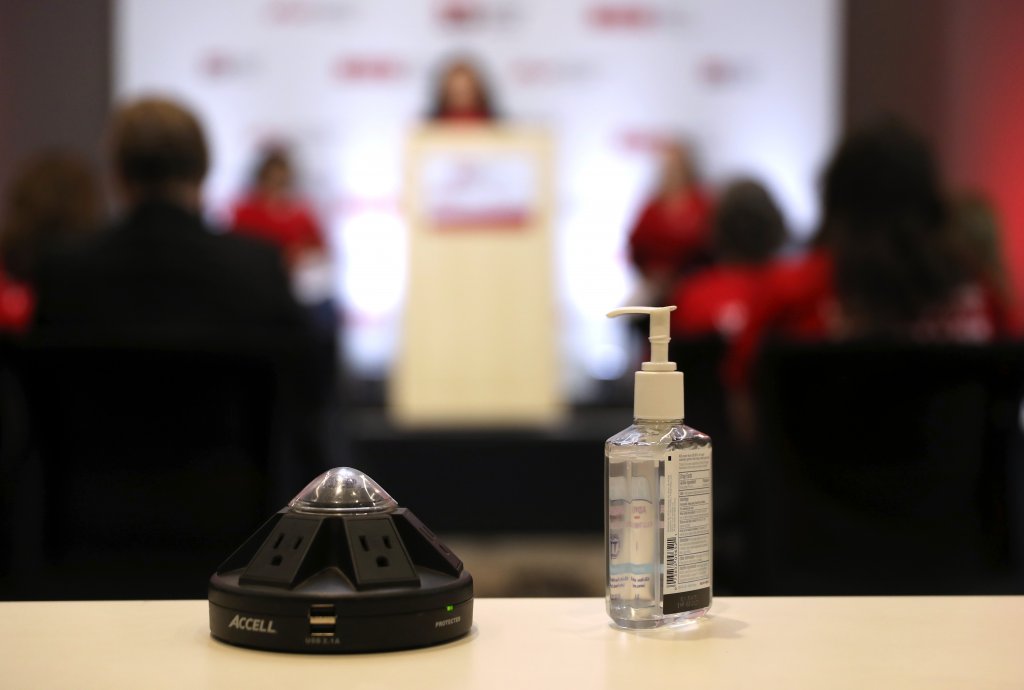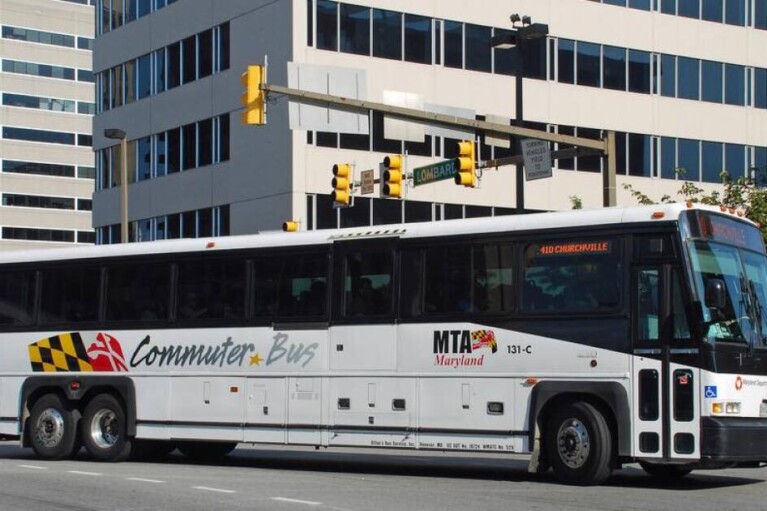
There are still a few AARP card-carriers among us who recall World War II food rationing and curfews and the great polio scares of the 1940s and 1950s before Jonas Salk’s magic elixir rescued the world’s masses from the crippling disease that afflicted President Franklin Delano Roosevelt at a Boy Scout jamboree in New York.
Welcome back, woke elderly. The millennials have never witnessed anything like this, not SARS, not AIDS, not even the gas rationing of the 1970s. Maybe that’s why toilet paper’s a premium item. Remind them, though, that COVID-19 is a respiratory ailment, not a bowel condition. Kids.
AIDS, too, unlike COVID-19, which is airborne, was a difficult disease to catch. AIDS required actual effort and mutual consent. The exchange of bodily fluids was often lethal.
As for gas rationing during the Arab oil embargo, at 10 gallons a fill, get in line with the rest. Now there’s no limit to how much is available, at the cheapest prices in two decades. Except that there are few places to go, masked or unmasked. The immediate world is shut down.
SARS, or CoV-2 — severe acute respiratory syndrome — was another airborne respiratory flu that rattled the world around 2002-04. SARS was a coronavirus which bore a cunning resemblance to the current strain and attached itself to humans via an intermediate host. Some say bats.
The “asphidity bag” was influenza’s contribution to folklore and home remedies. The 1918-20 Spanish flu pandemic infected 500 million people worldwide and killed an estimated 40 million-50 million people in its deadly grip, one of the largest extinctions ever. But its legacy was a stinky artifact — the asphidity bag. The “bag,” as it was known in folk medicine, was thought to ward off colds and other germs.

Frank A. DeFilippo
It was stuffed with pungent herbs, such as ginseng, pokeweed and yellowroot, and fastened to undergarments. Though not its primary purpose, the asphidity bag’s repellent odor made “social distancing” a welcome choice.
Americans are adventurers, unused to being sequestered, inconvenienced, even resistant to orders. Americans can also be unforgiving, demanding to know why, for crying out loud, the nation that put a man on the moon does not have enough germ masks and ventilators to see the nation through a forewarned pandemic.
The sentiment is bittersweet, especially for Maryland, the state that hosts three of the nation’s top research institutions — the National Institutes of Health, the Johns Hopkins Hospital and the University of Maryland Medical Systems.
The first impulse of Americans is denial, then defiance, and finally submission with the twisted niggle that those in charge should have warned us sooner.
Their second synapse is to head to the supermarket and wipe out a few shelves, a full cart of paper goods and another of nonperishable and freezable foodstuff. In the checkout line behind such a selfish, inconsiderate hoarder, it is no evil thought to wish that the full purchase would rot before it hits the pantry or, at least, the perp would choke on the first bite.
And on the political front…
On a lesser plane than immediate survival and public health, the political consequences of the novel coronavirus will play out over the next few weeks in surprising and, perhaps, disappointing ways.
It was, for example, a natural instinct for members of the General Assembly to applaud themselves for a truncated and orderly finish to its session that produced 500-600 new pieces of legislation in three vote-packed days. Do they actually know what they enacted in that final rush?
Working in quasi-quarantine, with no public witnesses or no visible persuaders, one way or the other, except for the few big-ticket items such as Kirwan and new taxes, it is impossible to know what the bills do or how much their cost to taxpayers. The Assembly will tentatively reconvene late in May and then may have a chance to discover what they have wrought.
It is now left to Gov. Larry Hogan and his legal staff to sort through the pile and to impose their judgment on the validity of the legislation instead of allowing the legislative hearing process and floor debate provide the necessary screening.
Next to come are the year’s scheduled elections. Hogan, acting on the side of caution and prevention, had little choice but to push up the elections from late in April to early in June, when the hope is the coronavirus curse will subside or pass, though health officials say that’s unlikely.
He did, however, assign the selection of an interim 7th District member of Congress to the mails on the original April 28 date. This is risky business and unexplored methodology. The switch may not alter the outcome, but it requires internal campaign adjustments and constant official vigilance.
The 7th is splayed like a runaway ink blot across three jurisdictions – Howard and Baltimore counties and the bulk of the district anchored by Baltimore City, where strange events can happen at election time.
It’s a new case of the old reverse English. Instead of focusing on getting the vote out, mail-in ballots require voters to stay home. The unfamiliar exercise will encourage door-knocking, offers of assistance and neighborly help to the mail-box slot. The vote-by-mail venture is wide open for mischief.
Item: In the 1963 mayoral election in Baltimore, a political factotum, Ruby Stofberg, took 50,000 sample ballots to the post office for mailing close to Election Day. The ballots never arrived at their intended destinations. Three months later, the mail bags containing the sample ballots were found in a locker at the post office.
The overall election — president, members of Congress, mayor, City Council — rescheduled for June 2, probably involves a major departure from original campaign plans.
Right up front, an additional five weeks of a campaign for mayor, for example, will cost more money than candidates had originally budgeted – TV commercials, staff, transportation, headquarters, signs, mailers, polling, and all of the paraphernalia that support a campaign.
Money usually follows the perceived winner. And any candidate who isn’t, by now, in a competitive position in any race is unlikely to attract much additional financial support to carry through the tacked-on weeks of campaigning.
The additional time can be both an advantage and a disadvantage to candidates. Time is on the side of the aggressors. Front-running candidates have little to gain and everything to lose, while those running slightly behind are given the benefit of working the calendar to their advantage.
The slightest mistake, misstep or misstatement — or any turn of events over which candidates have no control — can be costly to incumbents or frontrunners, while they can offer an opportunity to trailing candidates to blunt momentum and seize the occasion to convert a challenge into an advantage.
What might F. Scott Fitzgerald say?
But instead of dwelling on the pesky virus, and kvetching about cabin fever, and other bad stuff, put aside the gloom and have some fun. Read the following short take. It’s a parody of a letter that might have been written by F. Scott Fitzgerald while sitting out the spread of a virus in 1920 Paris. But instead, it was written only recently by Nick Farriella for “McSweeney’s,” a humor website.
“Dearest Rosemary:
“It was a limpid dreary day, hung as in a basket from a single dull star. I thank you for your letter. Outside, I perceive what may be a collection of fallen leaves tussling against a trash can. It rings like jazz to my ears. The streets are that empty. It seems as though the bulk of the city has retreated to their quarters, rightfully so. At this time, it seems very poignant to avoid all public spaces. Even the bars, as I told Hemingway, but to that he punched me in the stomach, to which I asked if he had washed his hands. He hadn’t. He is much the denier, that one. Why, he considers the virus to be just influenza. I’m curious of his sources.
“The officials have alerted us to ensure we have a month’s worth of necessities. Zelda and I have stocked up on red wine, whiskey, rum, vermouth, absinthe, white wine, sherry, gin and lord, if we need it, brandy. Please pray for us.
“You should see the square, oh, it is terrible. I weep for the damned eventualities this future brings. The long afternoons rolling forward slowly on the ever-slick bottomless highball. Z. says it’s no excuse to drink, but I just can’t seem to steady my hand. In the distance, from my brooding perch, the shoreline is cloaked in a dull haze where I can discern an unremitting penance that has been heading this way for a long, long while. And yet, amongst the cracked cloudline of an evening’s cast, I focus on a single strain of light, calling me forth to believe in a better morrow.
“Faithfully yours,
“F. Scott Fitzgerald”
Get it?




 Creative Commons Attribution
Creative Commons Attribution